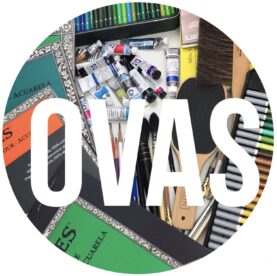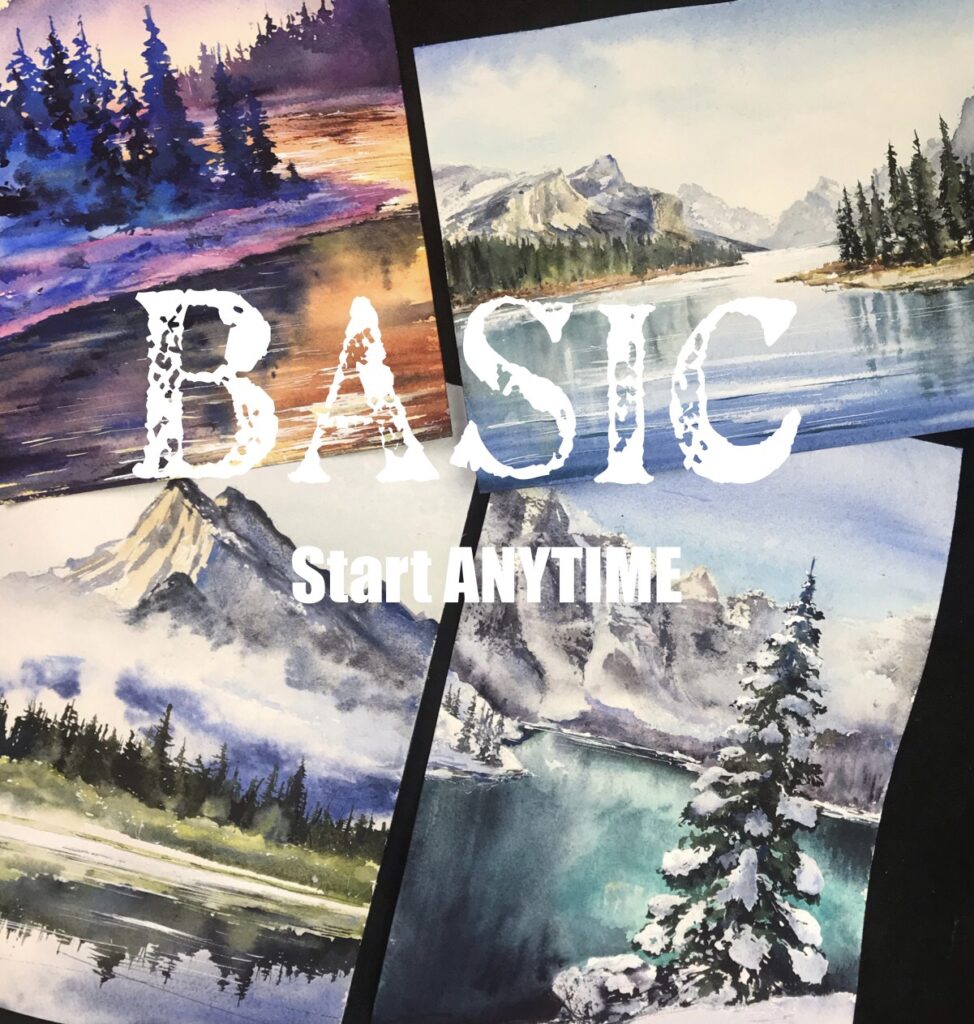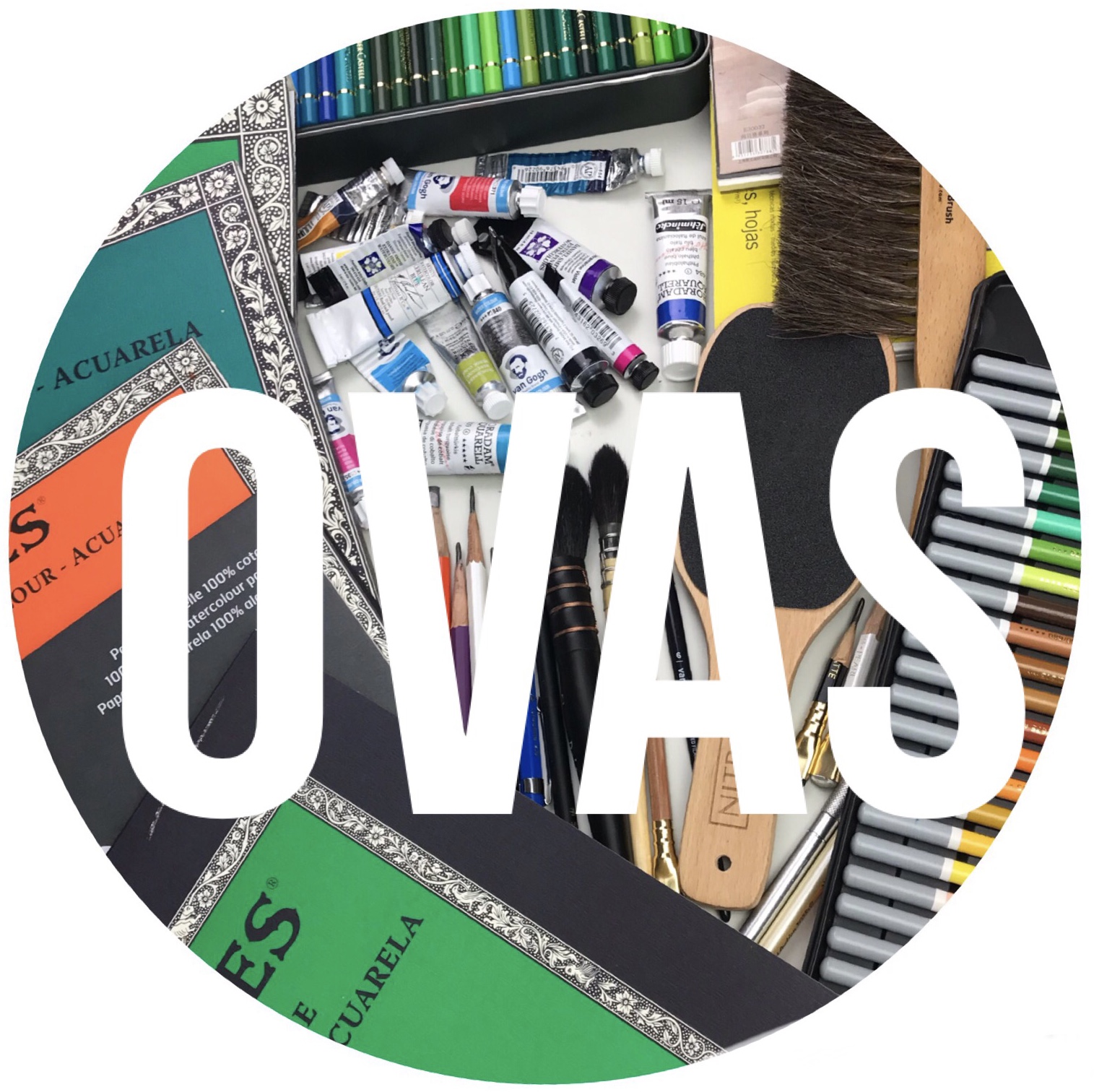Explore the Canadian landscapes of Newfoundland and Labrador, Alberta and Ontario in this set of mini-courses.
Upgrade your skill level and widen up your artistic horizon!
Extend your watercolour skills while painting the fauna, coasts and seascapes of Newfoundland, the mountains, lakes and parks of Alberta and the Winter fairyland of Ontario.
Alberta is one of mini-course of the Canadian landscape set of courses. You will travel through well known national parks Jasper and Banff.
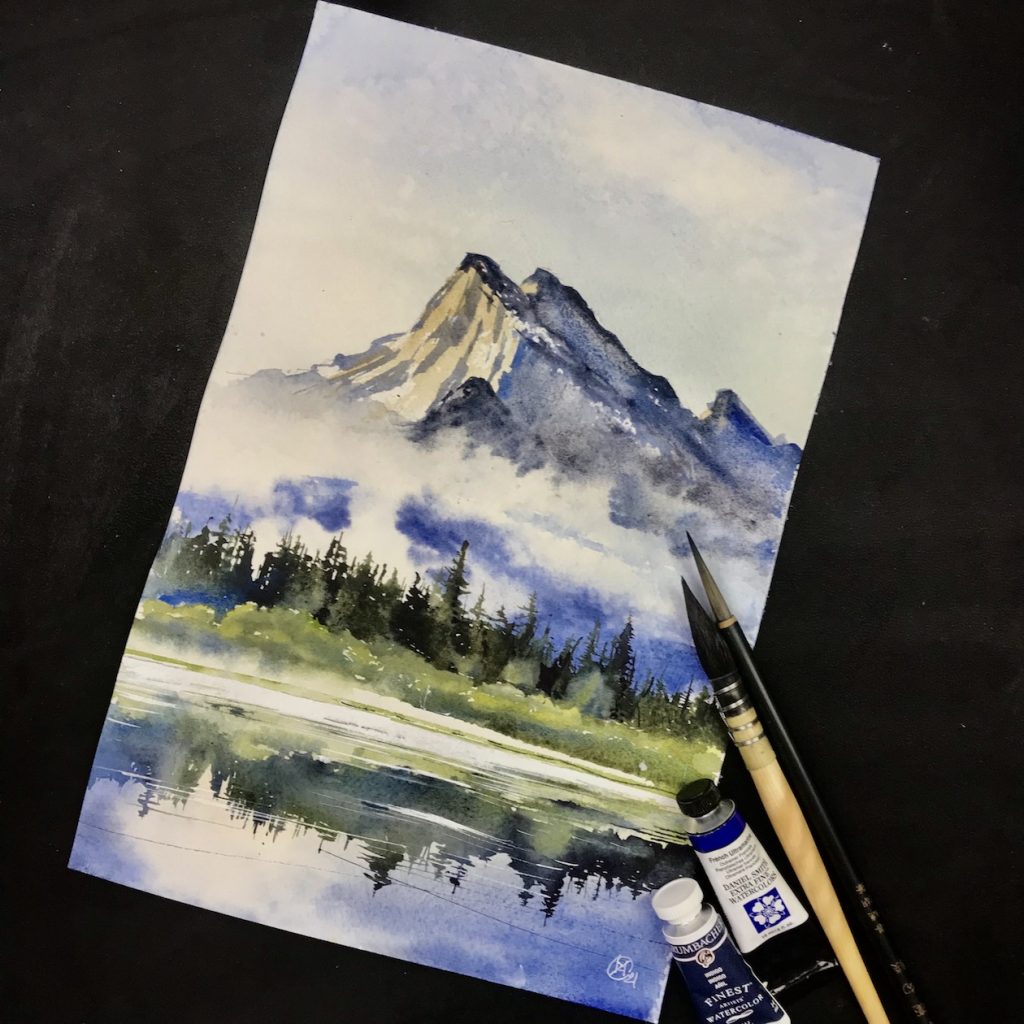
BASIC package for online self-study 4 lessons; 4 paintings; 4 practical exercises; 8+ hours of detailed video tutorials. Video access: Lifetime for self-studying You always can upgrade to REVIEW.
Course Content
What this course gives you?
You will practice to paint mountains, trees, forest lines and water surface reflection. You will experimenting with colour palette to create the illusion of depth of crystal clear turquoise lakes. You will finish at least four large paintings plus practical exercises.
What is in the course?
This course contains four lessons. You will continue to learn the theory of atmospheric perspective and use this knowledge in practice. You will paint four landscape scenes, where you will experiment with different techniques of creating the illusion of water reflection. You will learn the how and why the tonal and colour composition depending on the time of day and the intensity of the sun light. Optionally you will learn how to emphasize reflection by adding decorative elements to your painting.
Lesson 1
Jasper. Paradise. Maligne lake. Spirit Island
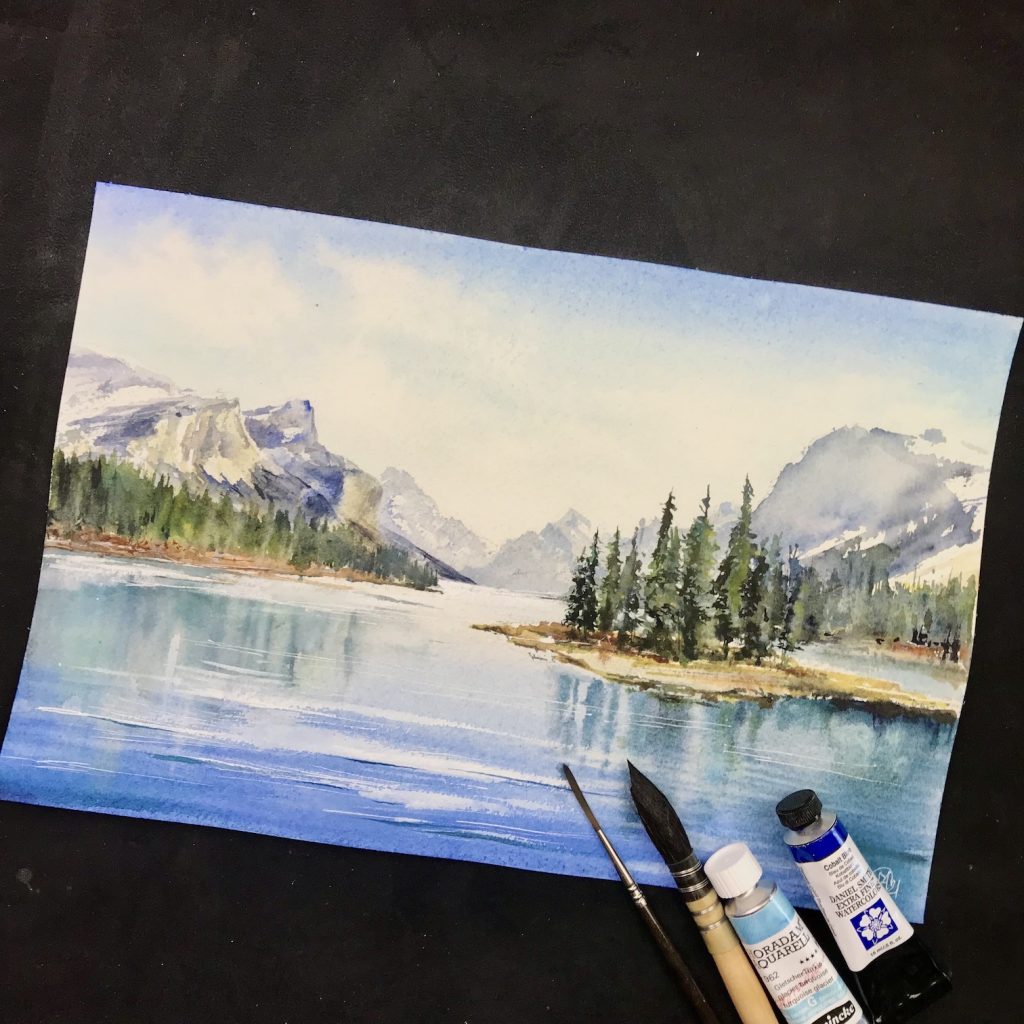
In this first class you will study the basic rules of atmosphere and tonal perspectives. You will do a few practical exercises to refresh your wash skills and brush work. You will practice painting scenery of the Paradise space. You will practice to create the illusion of light and a peaceful landscape using a pastel tonal palette.
Lesson 2
Banff. Morning Light glow

In this lesson you will practice In this lesson you will continue to learn the basic theory of atmospheric perspective. You will do a few practical exercises on how to create a fog and mist effect. You will learn the layering algorithm of painting to create the illusion that the subjects are located at different distances from a viewer. You will practice painting a gorgeous scene of the mountains over the lake where you will continue practicing creating reflections on the water surface.
Lesson 3
Banff. Moraine Lake
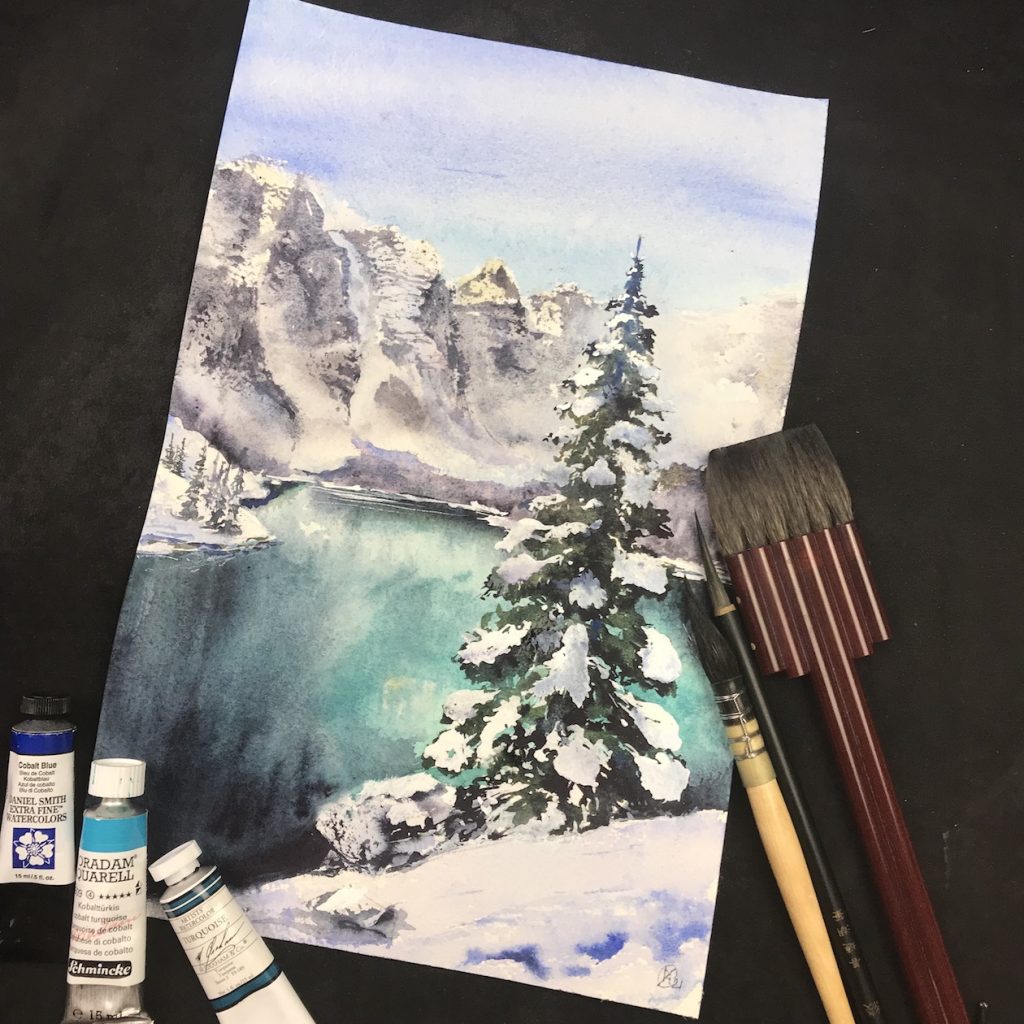
In this lesson you will start with an exercise to practice a pine tree painting. Then you will practice painting Moraine lake in Winter.
Lesson 4
Jasper. Golden Sunset
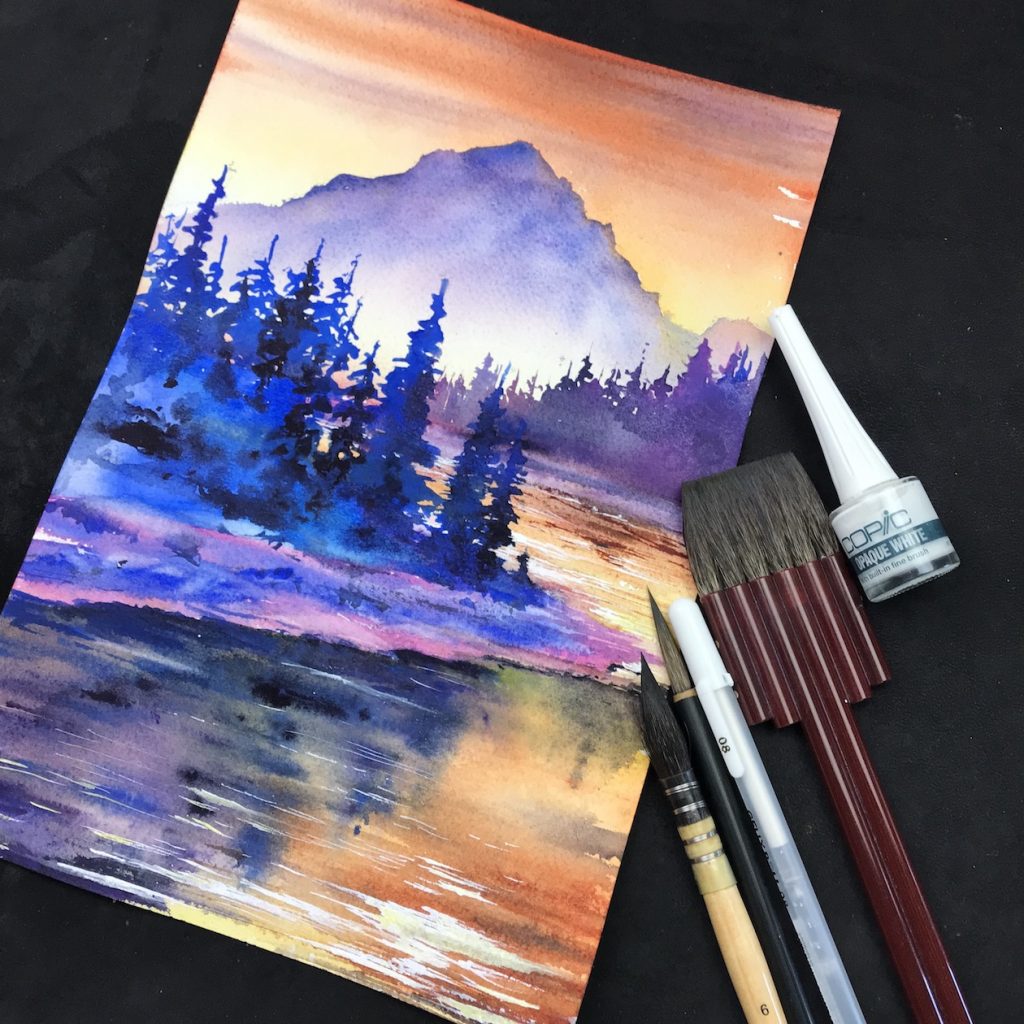
In this lesson you will paint the fantastic sunset over one of the lakes of Jasper National park. You will learn how to create the illusion of the last sun rays reflecting on the running water surface. Optionally you will learn how to emphasize the effect of golden reflection by using an application of the golden leaf.
Student work:
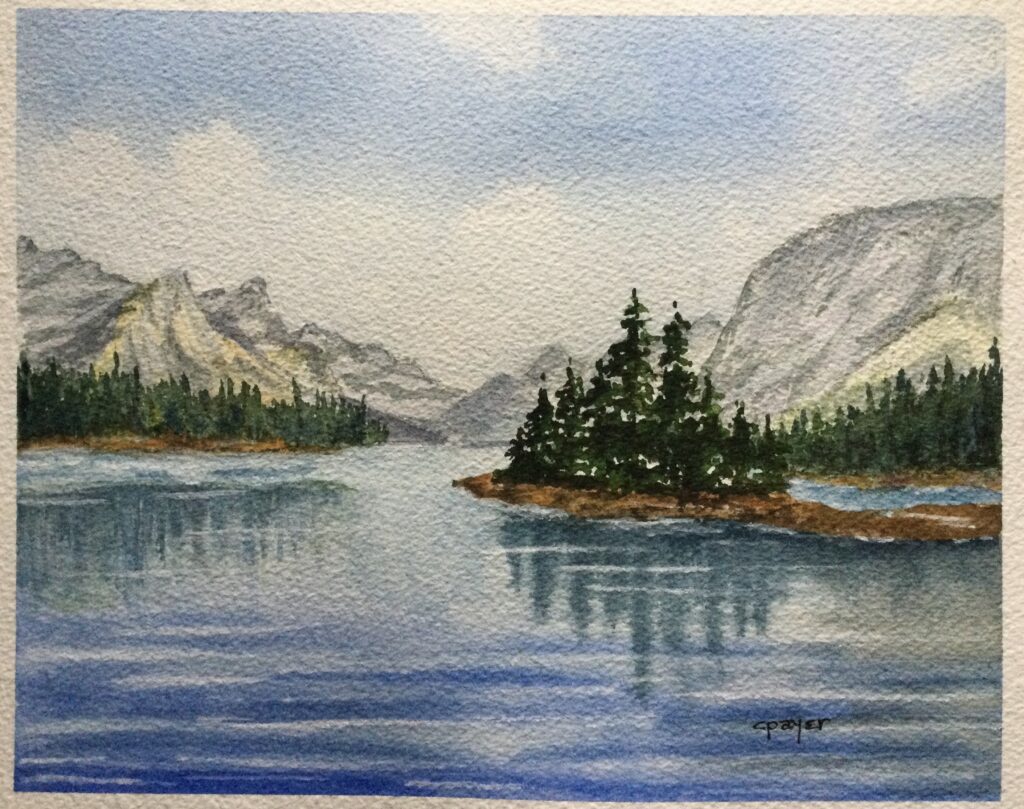
Colleen 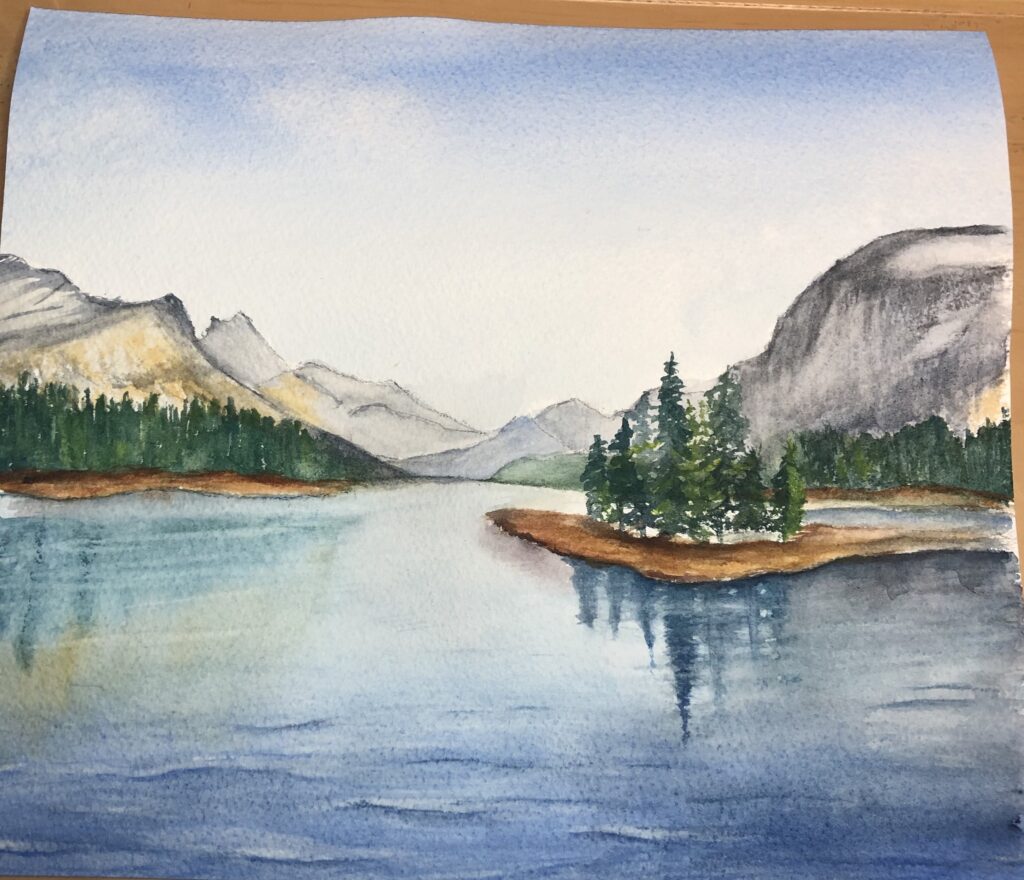
Karen 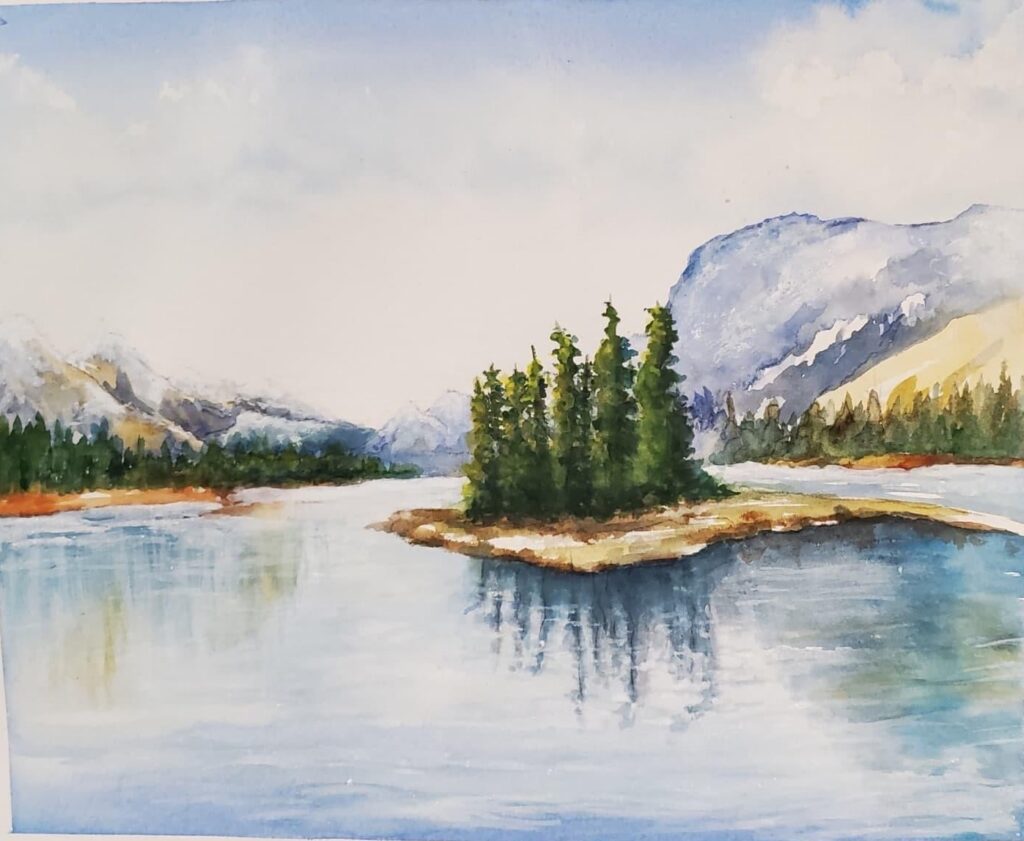
Ronda 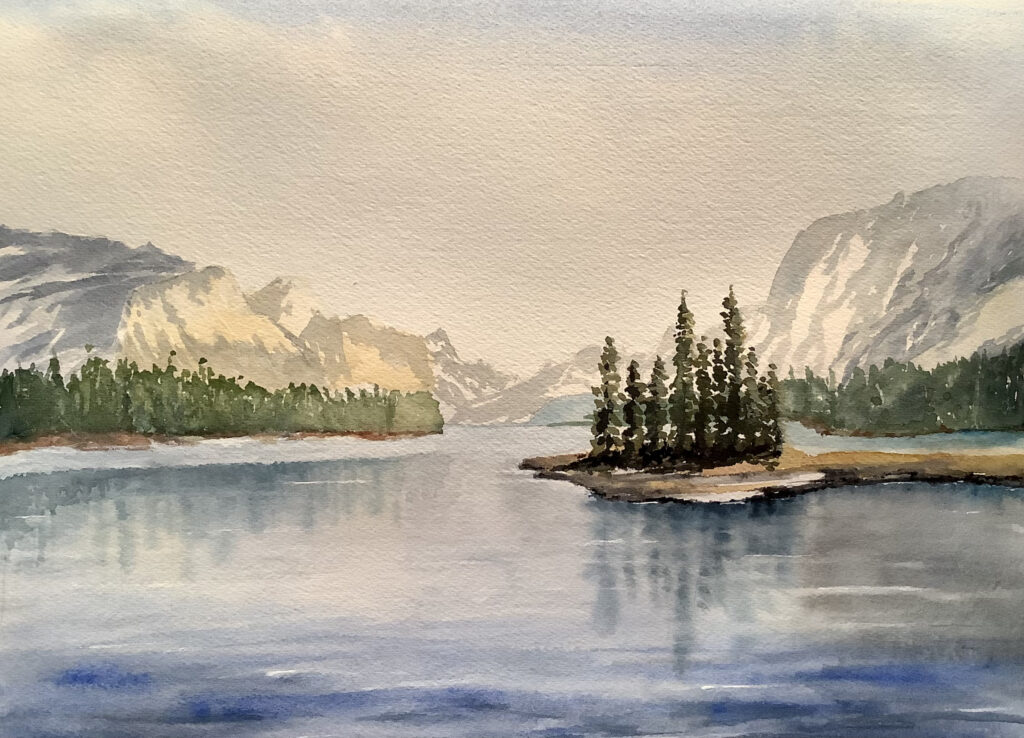
Rosalie 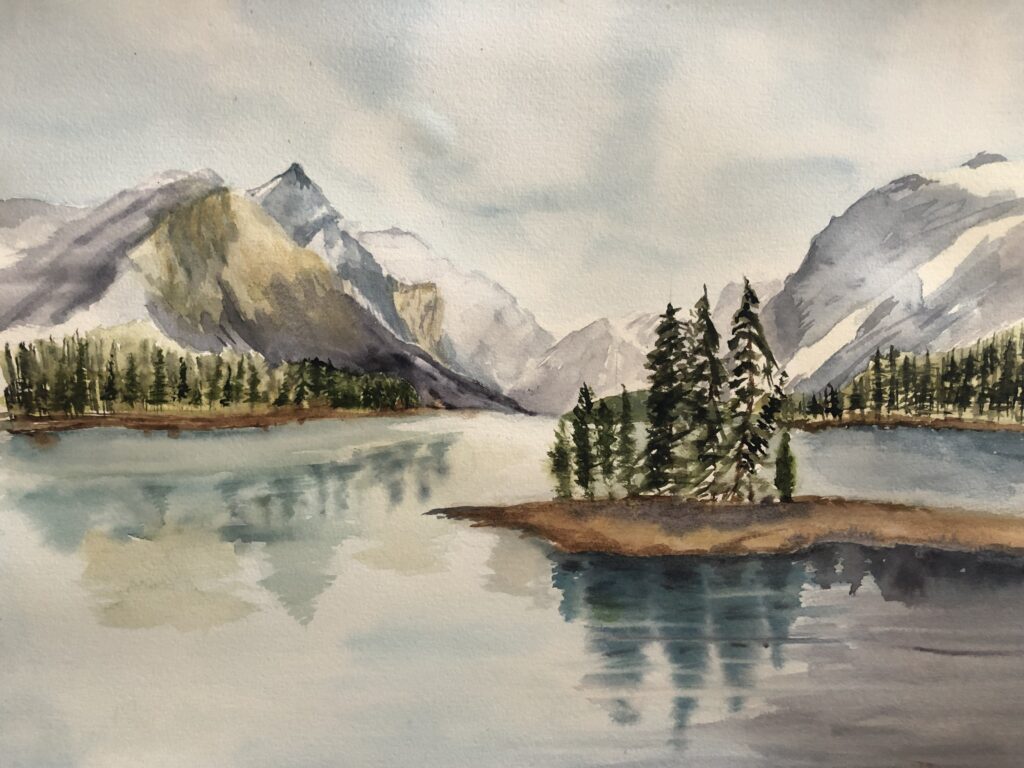
Sue 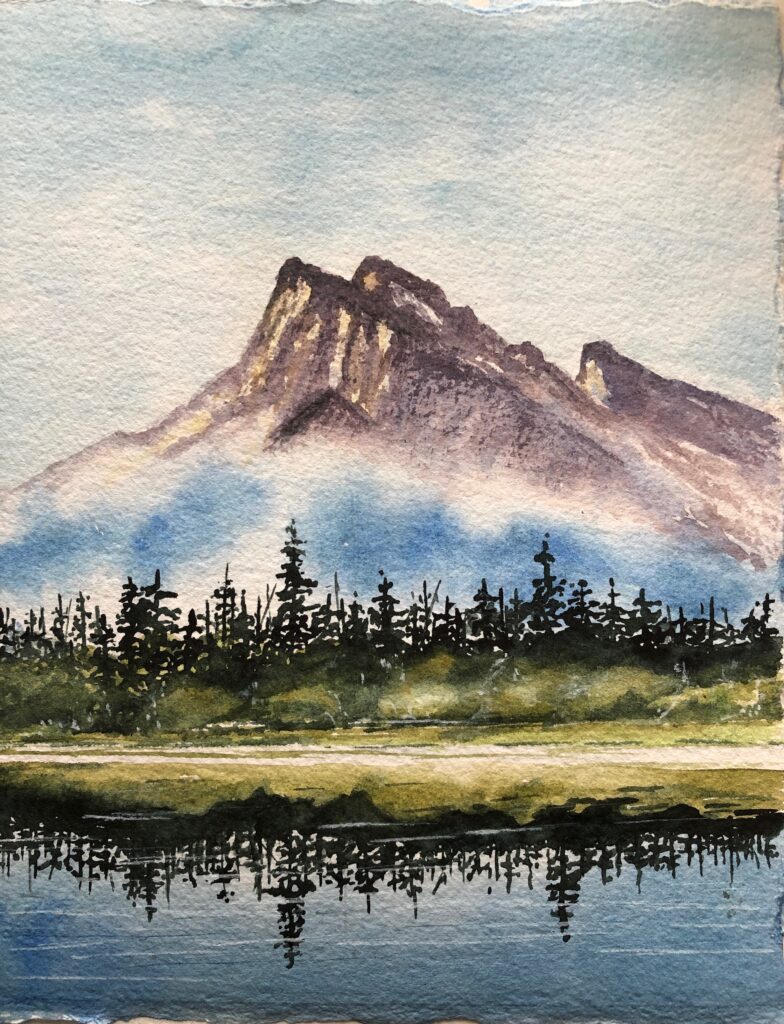
Colleen 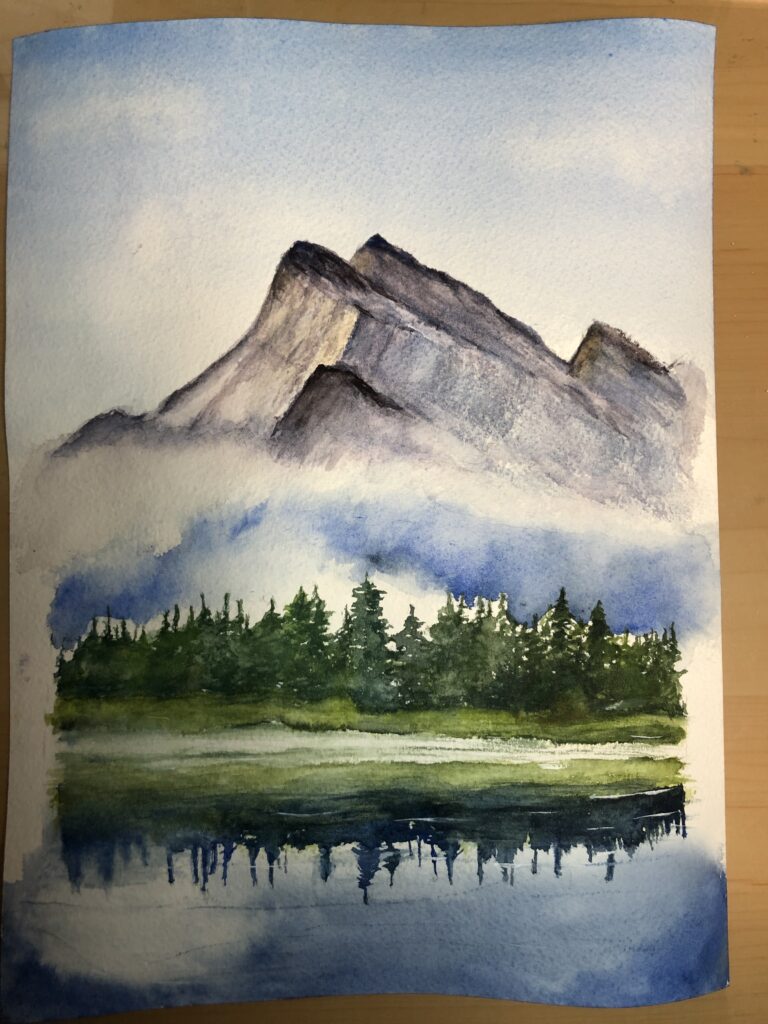
Karen 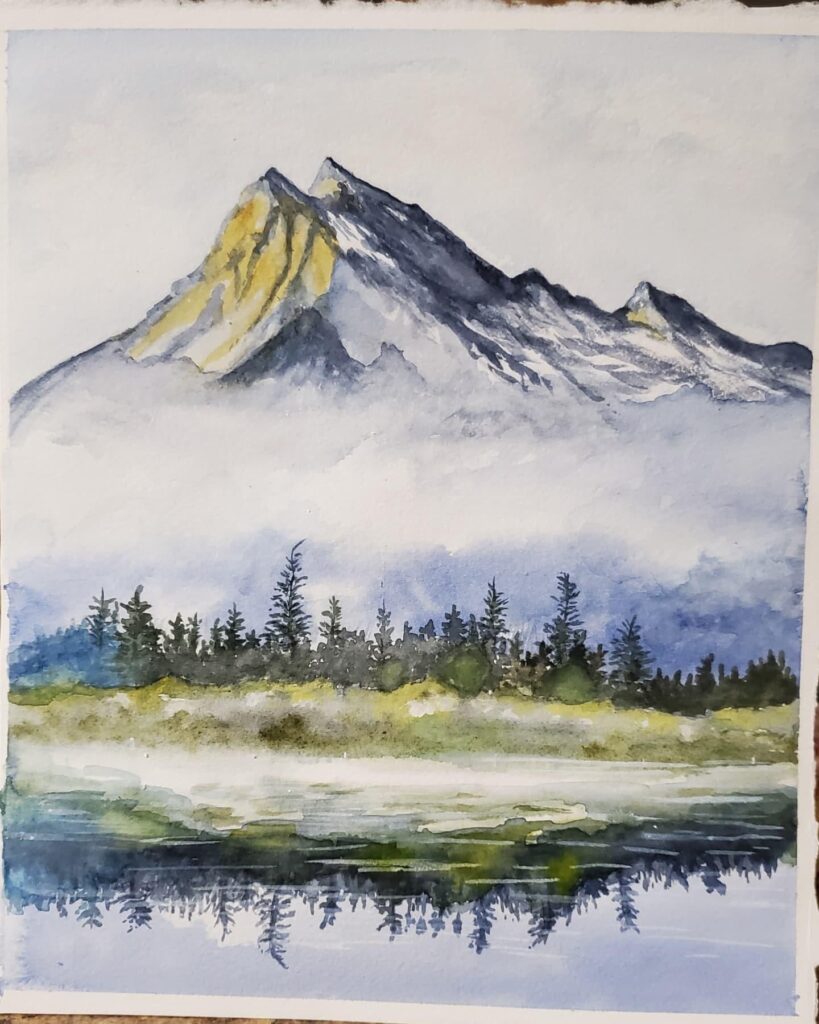
Ronda 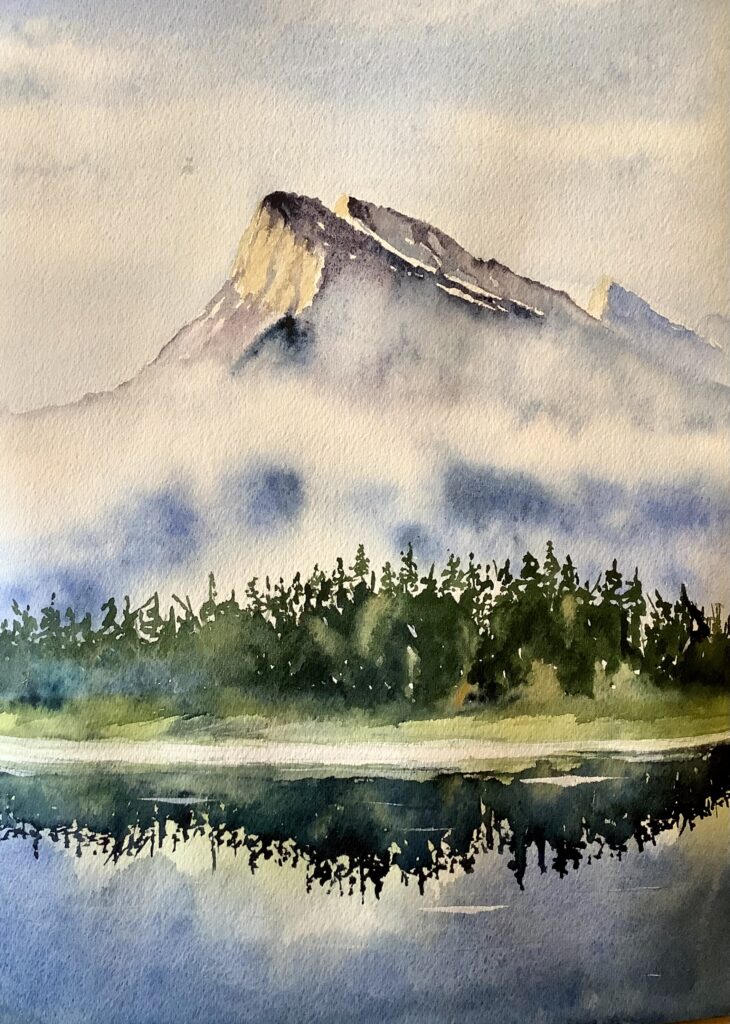
Rosalie 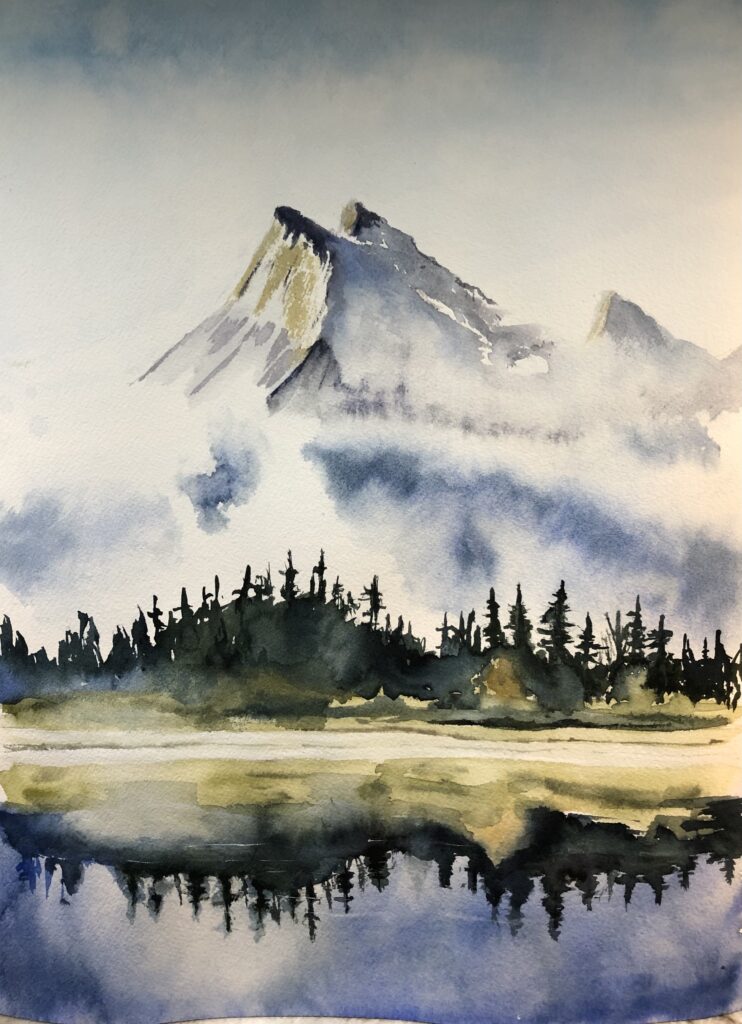
Sue 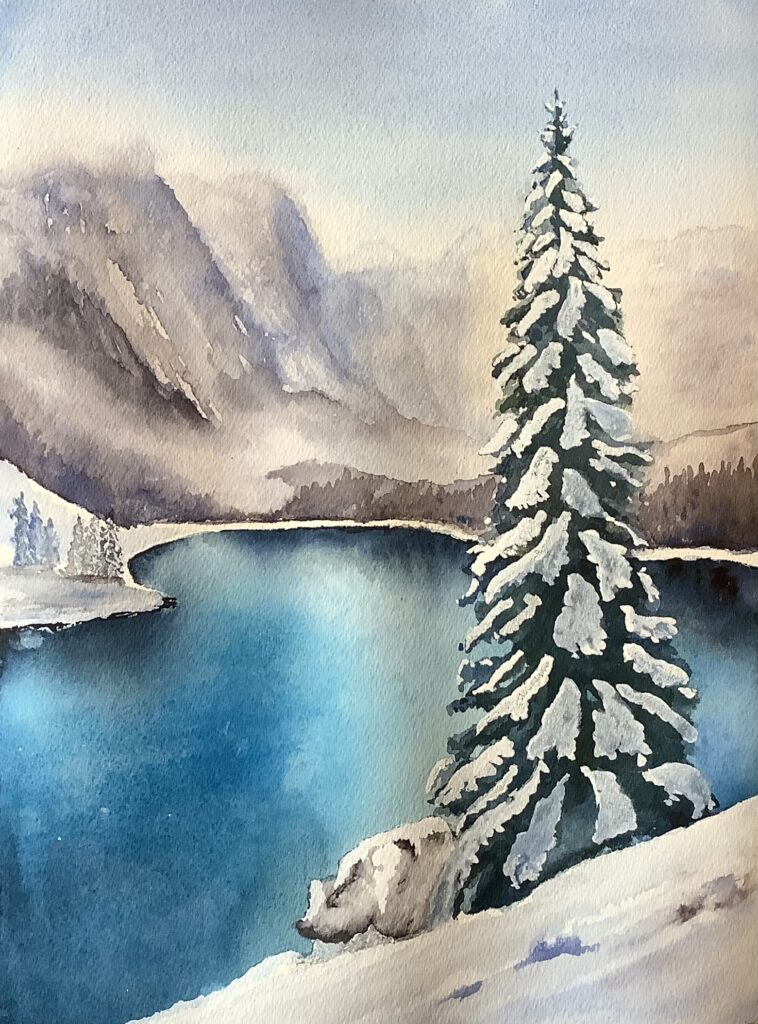
Colleen 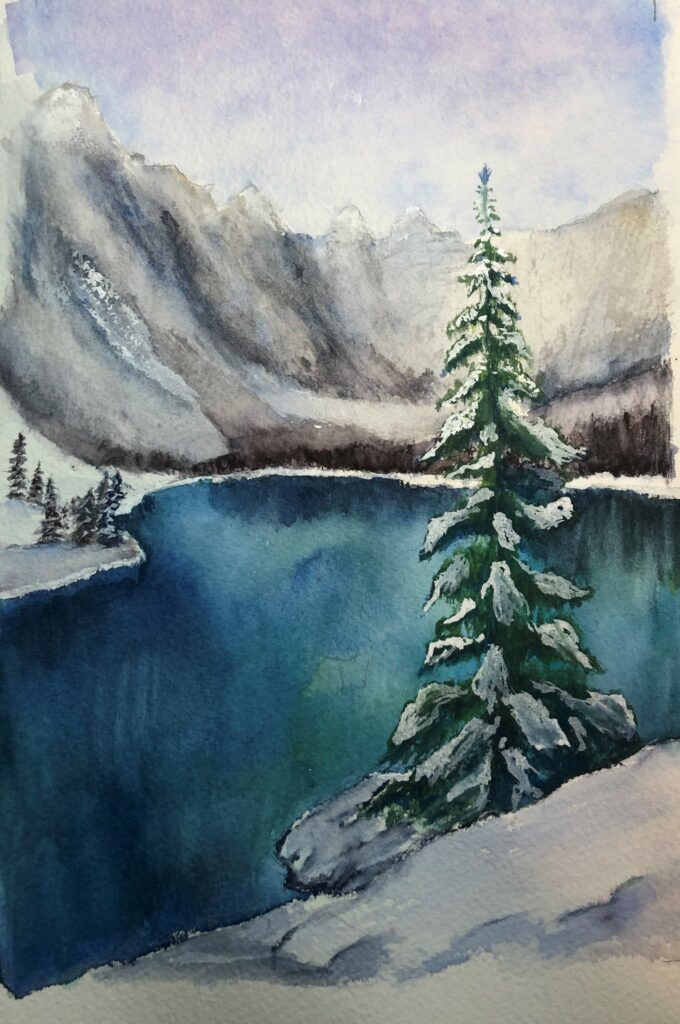
Karen 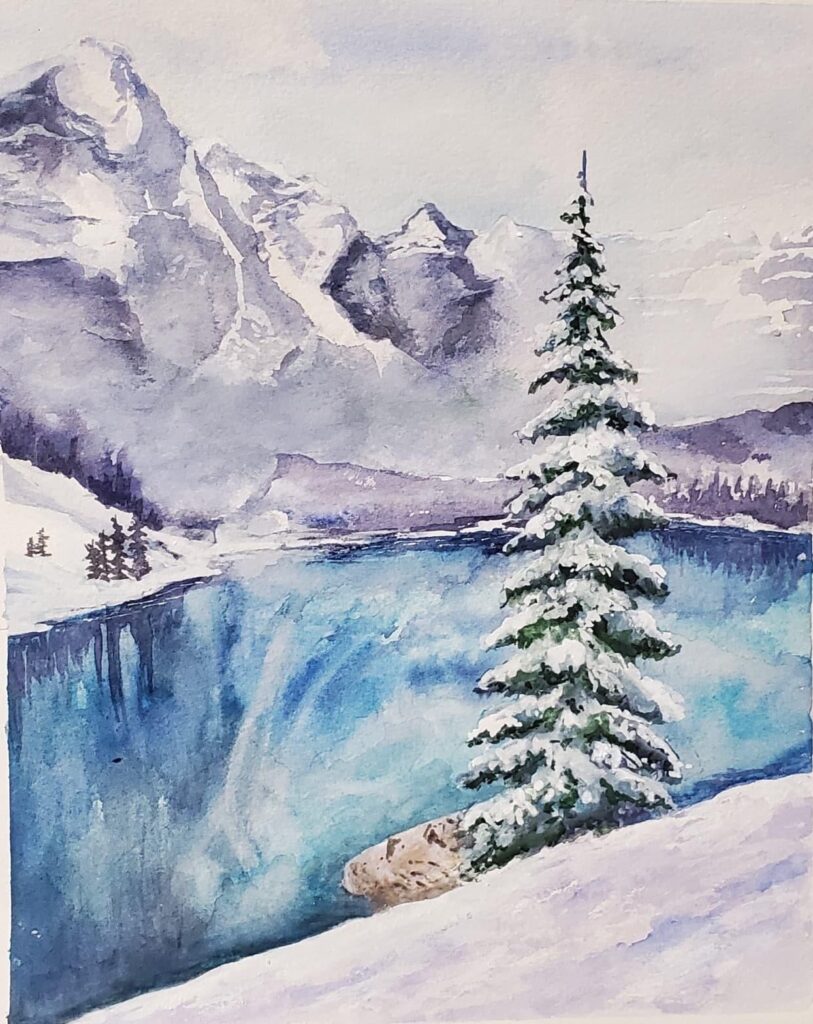
Ronda 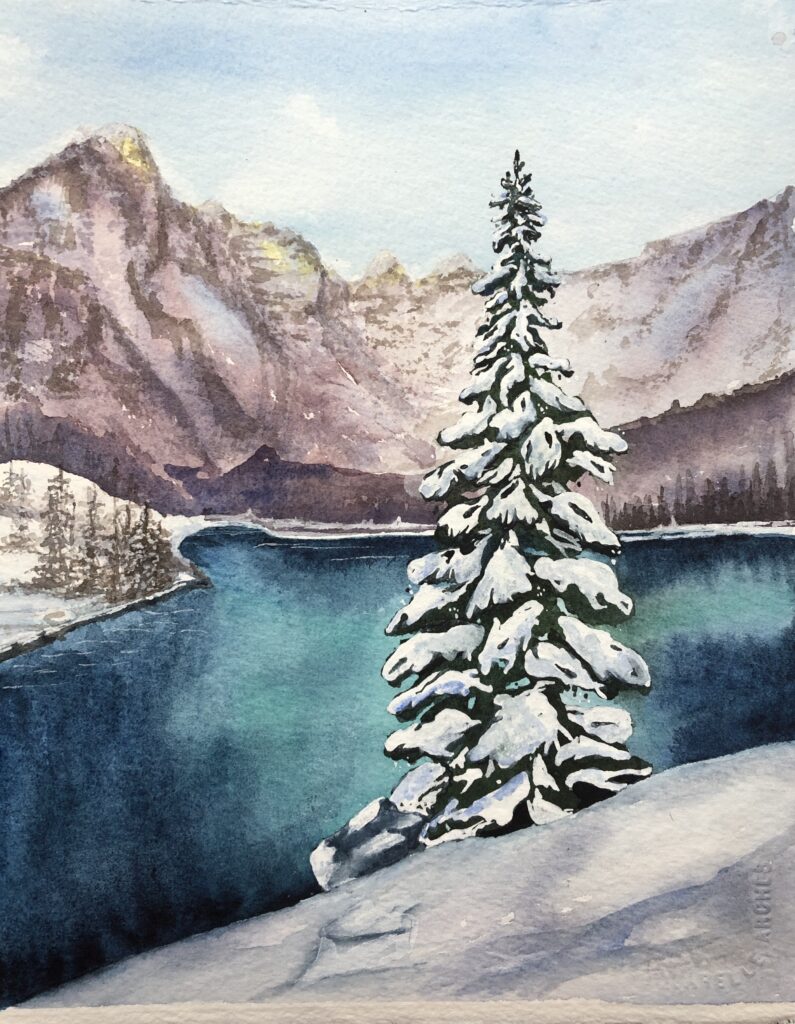
Rosalie 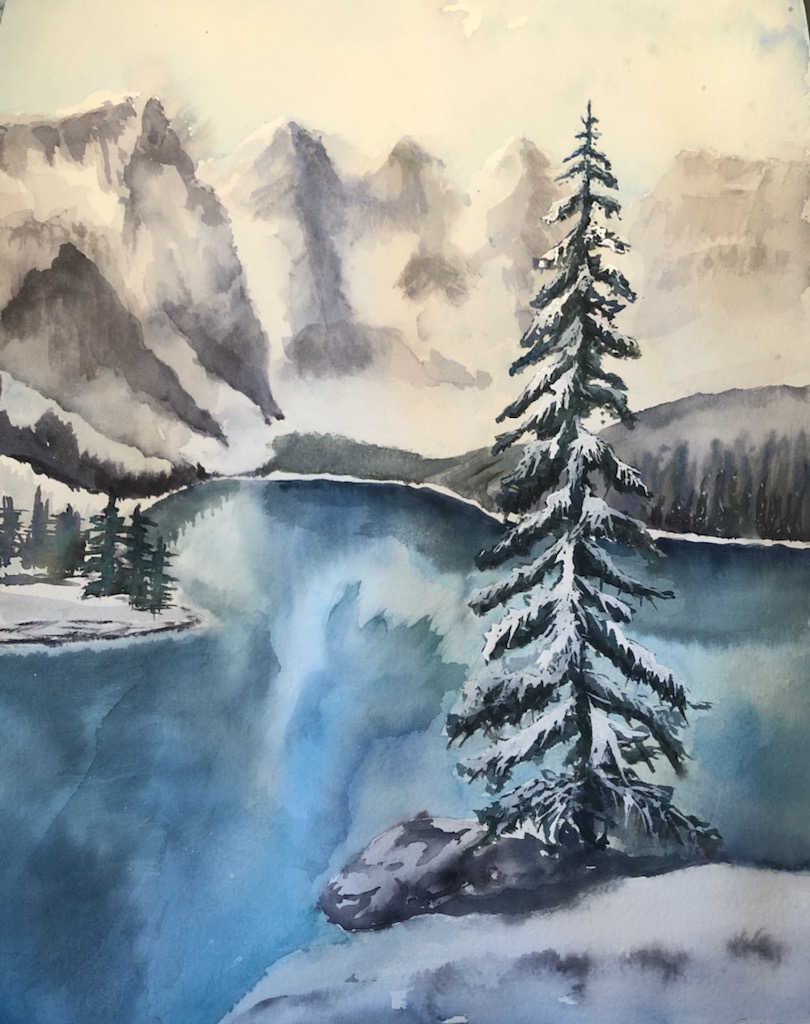
Sue 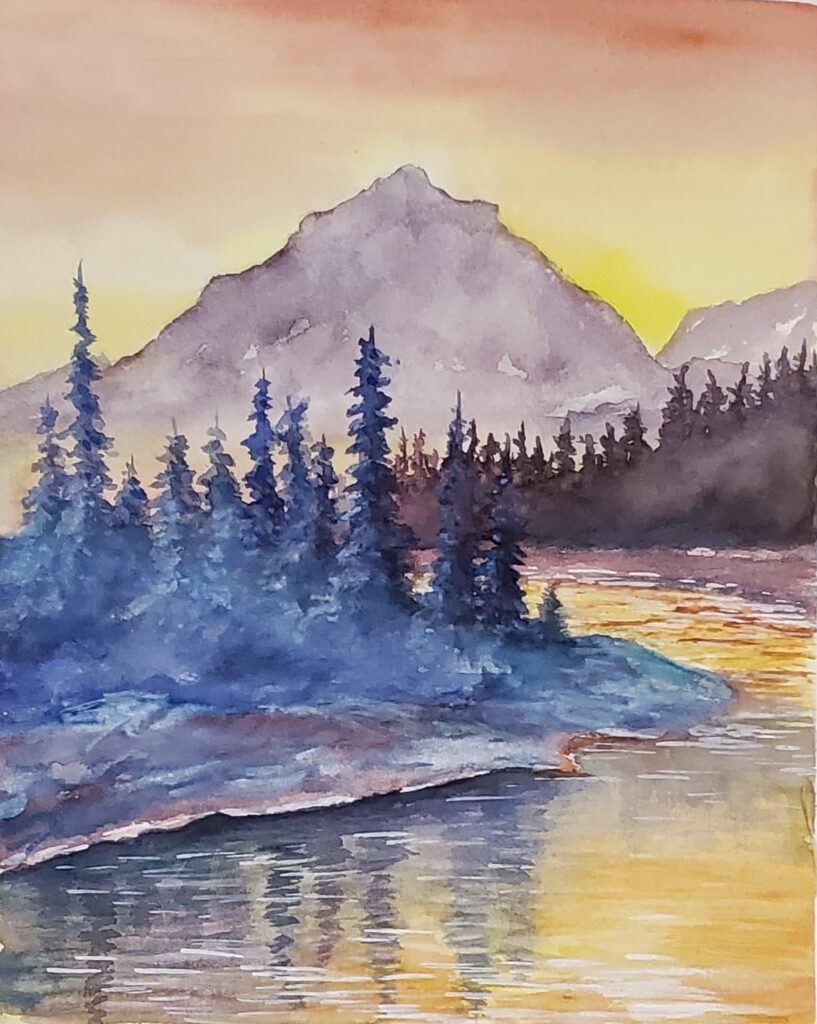
Ronda 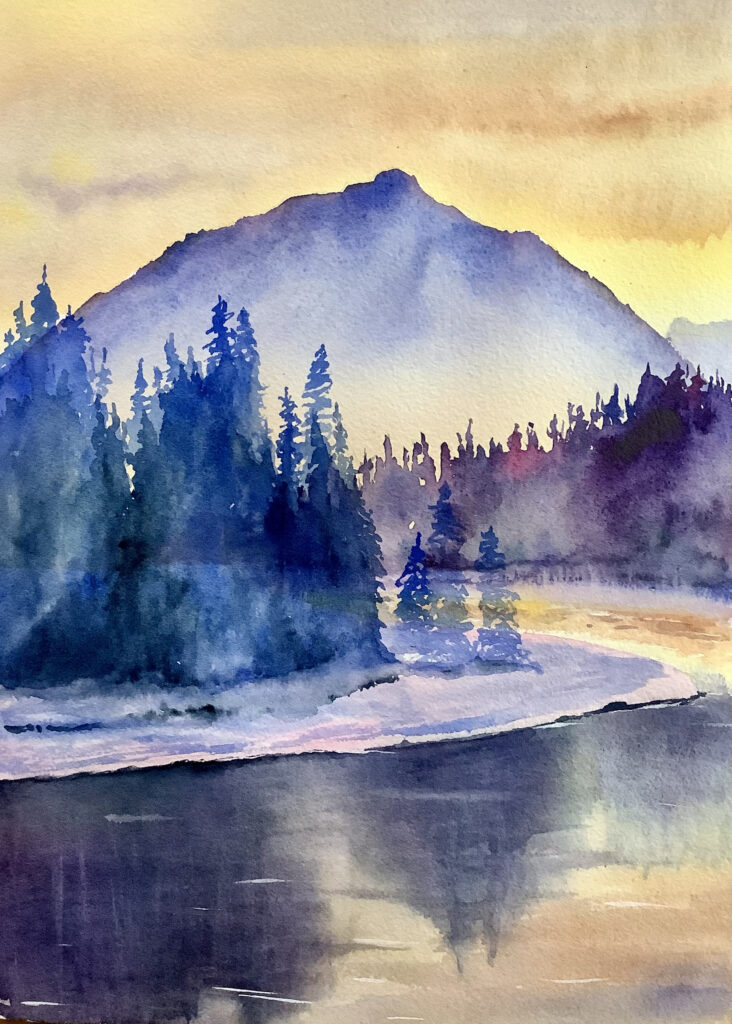
Rosalie
Materials that I am going to use during the course;
This list is only for your information, there is no need to get exactly what I am using:
Drawing paper, any type, a few sheets per class;
Watercolour paper, per class:
- one or two sheets of watercolour paper, 100% cotton, 300 gm2;
- And /or One or two sheets of Arches watercolour paper, 100% cotton, cold press or rough, 300 gm2, size A4 or bigger;
Watercolour brushes;
- Round # 10-12, # 6 and # 2; Escoda or Dainayw;
- calligraphy brush (recommended);
- flat synthetic brushes: 3/4 and 11/2 or larger (Grumbacher, Santa Fe Art Supply, Connoisseur )
- Liner brush (Princeton, Artist’s Loft)
Watercolour paint:
IMPORTANT; Paint in tubes gives you the best results.
This is the list what I am going to use during this course:
Lemon yellow (optional) or any light yellow, Daniel Smith
Yellow Ochre, Daniel Smith
Buff Titanium (optional), Daniel Smith; or you can mix Ochre and Neutral Tint
Quinacridone Gold or Quinacridone Rust or Burnt Sienna, Daniel Smith
Opera Pink by Daniel Smith or Rose by Van Gogh (only for the last class)
Mineral Violet, Daniel Smith
Cobalt Blue, Daniel Smith
Turquoise by M. Graham or Cobalt Turquoise or Cobalt Green Turquoise, Schmincke
Cerulean Blue, Van Gogh
Turquoise Glacier , Schminske (optional)
Ultramarine, Van Gogh
Indigo, Grambacher
Olive Green, Van Gogh
Undersea green, Daniel Smith or you can mix Olive Green and Indigo
Yellow Dusk, Van Gogh (optional)
Burnt Umber, Daniel Smith
Neutral Tint, Schminske
Payne’s Grey, Van Gogh
White Gouache (optional)
And/or
White pen, Gelly Roll, 08, Sakura, Japan
And/or
COPIC White Opaque (gives you the best result)
Artistic tape;
Sea sponge;
Watercolour board (the board which you will tape your watercolour paper to) and plexiglass board (any plastic board that the wet paper will stick to); You can use any smooth surface board big enough to place your paper on it; glass, mirror, flat baking sheet;
Watercolour palette with a large surface for mixing pigments. Alternatively, you can use a white ceramic plate;
A Pencil 3H and 2B and Eraser;
Nano mister (recommended) and water spray;
Two large jars for water;
Paper towels and Kleenex;
Hair dryer.
Additional materials for Lesson 4 (Optional).
Waterbase sealer Mod Podge;
Metalic Foil (Metalic leaf) - gold colour;
small brush (any quality).
